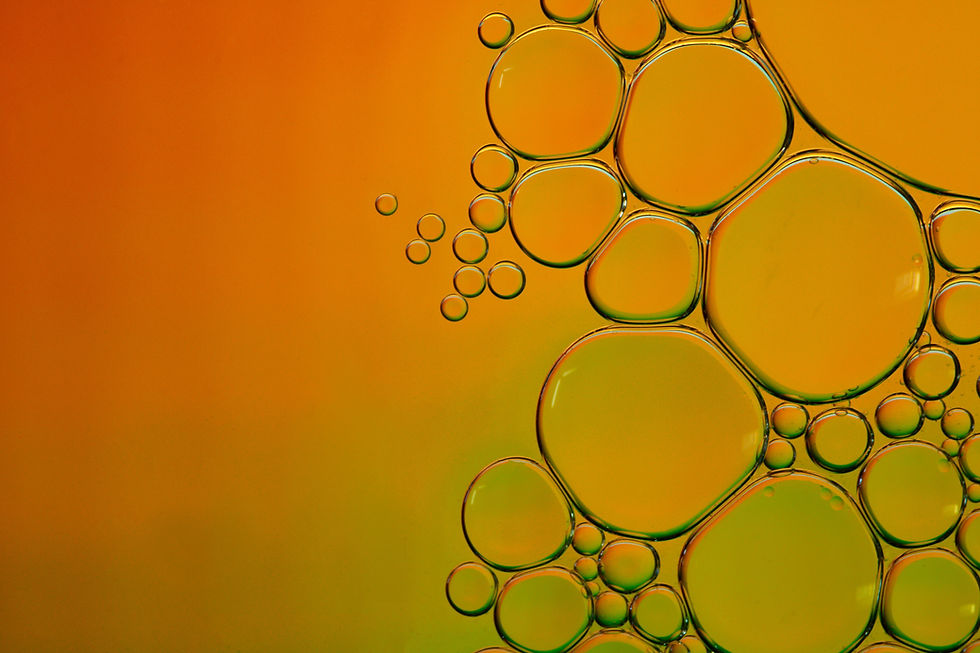Zesty citrus essential oil waits within the colorful garb of the fruit. Citrus is beloved for uplifting aromas and potent revitalizing properties, making it popular in aromatherapy, cosmetics, and perfumes. Here are three ways to extract citrus oil.

Steam distillation is an effective and widely used technique for citrus fruits like oranges, lemons, limes, and grapefruits. However, many people prefer the cold-press method. Either way, because the essential oils are in the peel they're more readily drawn to the surface.
Citrus essential oils, known for invigorating uplifting properties, are derived from the zesty peels of fruits like oranges, lemons, and grapefruits.
The distillation process begins by peeling the fruit, trying to eliminate all the soft white pith, because it's bitter.
Chop peels into smaller pieces to increase surface area for better extraction.

Home Laboratory Distillation
To begin the steam distillation process at home, prepare the following equipment:
Steam Distillation Apparatus: This consists of a distillation flask, a condenser, and a receiving flask. You can purchase a complete steam distillation kit or create a makeshift setup using a large pot and a lid (explanation below).
Heat Source: A hot plate or gas lamp. Hot plates allow more even heating.
Water: Distilled water is recommended for purity.
Citrus Peels: Fresh peels from your choice of citrus fruits.
Ice: To help cool the steam.
Bottles for Storing Essential Oil: Amber or cobalt glass bottles are best to protect the oil from light.

Citrus Steam Distillation
Apply Heat: Start heating the water in the distillation flask. As the water heats up, steam will rise through the citrus peels, causing the essential oils to evaporate.
Monitor Temperature: Keep an eye on the temperature, making sure it stays stable. The ideal temperature for steam distillation should be around 100 degrees Celsius (212 degrees Fahrenheit).
Collect Distillate: As steam and oils travel through the condenser, the temperature change causes them to condense back into liquid form and flow into the receiving flask. This liquid contains both hydrosol and essential oil.

Separate the Essential Oil
After several hours of distillation, a thin layer of essential oil will be floating on top of the hydrosol in the receiving flask. Once the distillation process is complete, carefully separate the essential oil using a pipette or a separating funnel. Store the essential oil in amber glass bottles to protect it from light degradation.
Home Stovetop Oil Extraction Distillation Method
Materials needed:
Large pot with lid
Heat-resistant Bowl to fit inside it
Stovetop or Hot Plate
Ice
Water
Chopped citrus peel

Method:
Fill pot with water to the point the bowl floats in it. The bowl shouldn't touch the bottom of the pot.
Put the zesty peels in the water surrounding the bowl. Bowl should remain empty and with rim well above water level.
Turn on heat. Place pot lid inverted atop pot. Its shape lets the steam condense and run down down to drip into the bowl. Put ice in the inverted lid to hasten the condensation process.
Allow the brew to barely come to a boil, c. 100 °C ( 212 °F ). Try to keep the heat just below the boiling point. If water runs low in pot, add more. Beware when lifting lid as steam can burn badly. Don't remove lid too often.

Eventually the bowl will contain a mix of hydrosol and essential oil. As it cools, the oil collects on top and can be removed, if possible with a pipette.
It can also be removed with heat distillation in a separate process as water boils faster than oil, and can be distilled out.
Cold Press Extraction
Heat isn't always effective, or desired. Citrus essential oils, such as lemon, orange, and grapefruit, can be extracted using a cold-press or no-heat method. The only heat is generated by internal friction.

Here's how to cold press:
Ingredients:
Fresh citrus fruit (lemon, orange, grapefruit)
Method:
Peel the Fruit: Carefully remove the zest from the fruit, avoiding the white pith underneath, as it's bitter and contains fewer beneficial oils.
Cold-Pressing: Use a press or a rolling pin to crush the peels. This releases the essential oils trapped in the zest.
Collection: Place the crushed peels in a container, and a few drops of the oil will begin to pool at the bottom. This oil can be collected using a pipette.

Examples:
Lemon Oil: Bright, fresh, and clean, ideal for uplifting moods and enhancing cleaning products.
Sweet Orange Oil: Cheerful and sweet, often used in homemade air fresheners and skincare.
Tips for Successful Extraction
Use Fresh Peels: The fresher the peels, the better the quality and quantity of oil you will extract.
Compress the Peels: Use a potato masher or similar tool to compress the peels in the distillation vessel. This maximizes surface area and enhances oil extraction.
Be Patient: Steam distillation can take several hours, depending on the quantity of citrus peels used. Patience is key to achieving the best results.

Infused oils can also be made with citrus, by macerating peel in a carrier oil such as almond or grapeseed, in a dark bottle for up to 3 months.
Safety Precautions
Always work in a well-ventilated area.
Use caution when handling hot equipment to avoid burns.
Ensure your workspace is clean to prevent contamination of the essential oil.
Non-Fiction Books:
Fiction Books:
READ: Lora Ley Adventures - Germanic Mythology Fiction Series
READ: Reiker For Hire - Victorian Detective Murder Mysteries

Comments